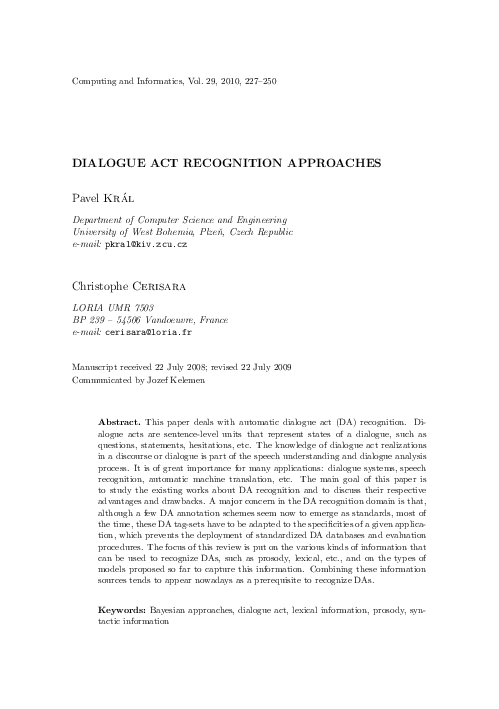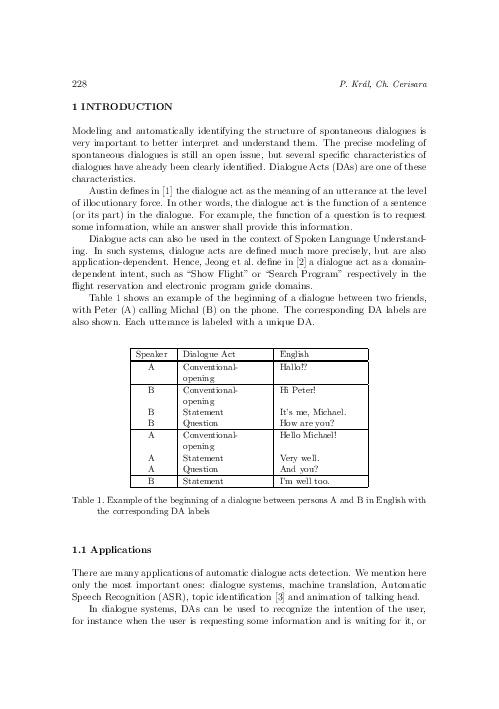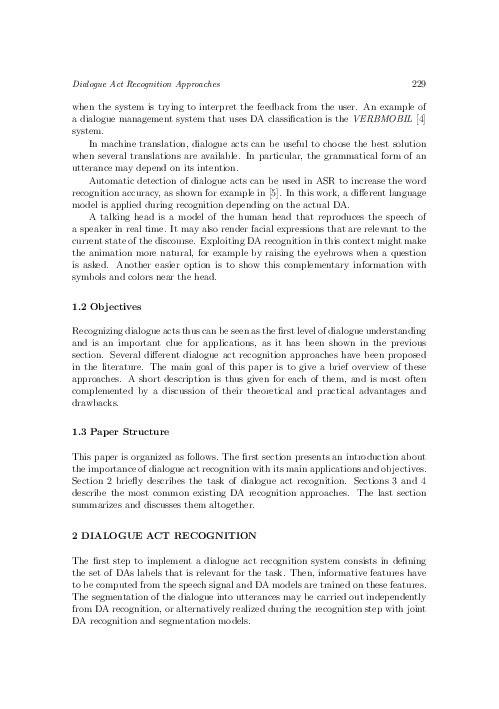Dialogue Act Recognition Approaches
keywords: Bayesian approaches, dialogue act, lexical information, prosody, syntactic information
This paper deals with automatic dialogue act (DA) recognition. Dialogue acts are sentence-level units that represent states of a dialogue, such as questions, statements, hesitations, etc. The knowledge of dialogue act realizations in a discourse or dialogue is part of the speech understanding and dialogue analysis process. It is of great importance for many applications: dialogue systems, speech recognition, automatic machine translation, etc. The main goal of this paper is to study the existing works about DA recognition and to discuss their respective advantages and drawbacks. A major concern in the DA recognition domain is that, although a few DA annotation schemes seem now to emerge as standards, most of the time, these DA tag-sets have to be adapted to the specificities of a given application, which prevents the deployment of standardized DA databases and evaluation procedures. The focus of this review is put on the various kinds of information that can be used to recognize DAs, such as prosody, lexical, etc., and on the types of models proposed so far to capture this information. Combining these information sources tends to appear nowadays as a prerequisite to recognize DAs.
reference: Vol. 29, 2010, No. 2, pp. 227–250


